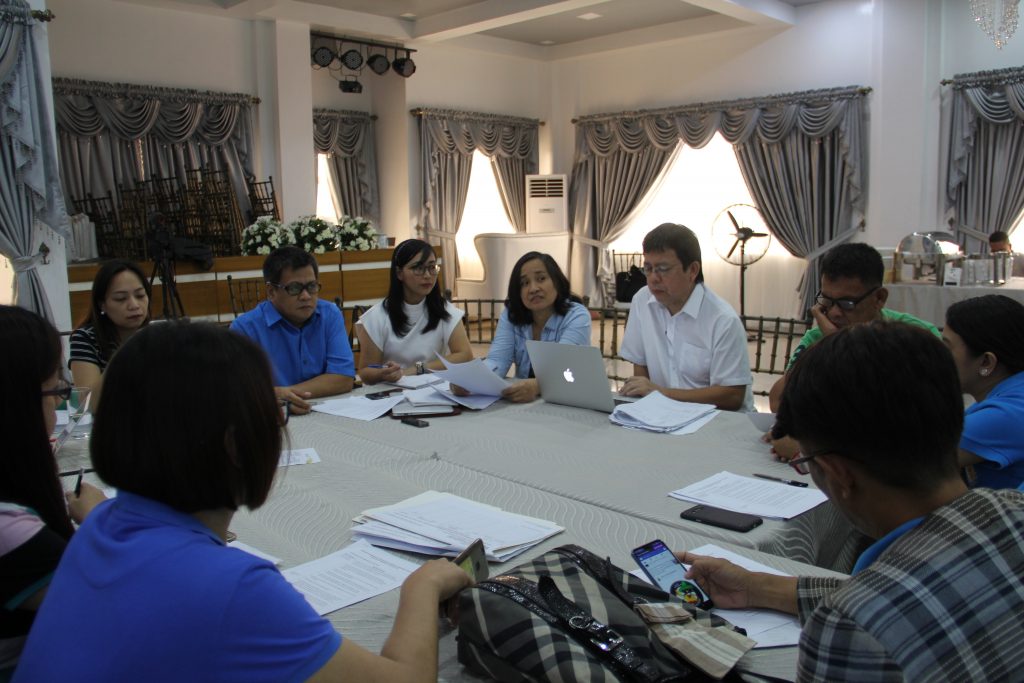
Cam Norte’s coco geonets, pineapple get P634.95M worth of CIP-related investments
DAET, CAMARINES NORTE – The Provincial Commodity Investment Plan (PCIP) of Camarines Norte for coco geonets and pineapple has generated P634.95 million-worth of investments both from the Philippine Rural Development Project (PRDP) and other national government agencies three years after its approval.
This was one of the major findings during the assessment on the PCIP institutionalization in the province, this municipality
The key stakeholders in the CIP consisting of the Provincial Local Government Unit, the Provincial Project Management and Implementation Unit (PPMIU), Department of Agriculture and other national government agencies as well as other stakeholders including the private sector, farmers and cooperatives gathered for the assessment and consultation. The said assessment determined which interventions were achieved and discussed recommendations to further enhance the plan.
Three three separate focus group discussions with the key players were conducted to collect data for the assessment.
The key players affirmed that having a PCIP prevented duplication of interventions, opened opportunities to improve the Value Chain of priority commodities, and made stakeholders feel empowered and heard.
“Nadagdagan po ang aming kaalaman at nalaman po namin na ang mga agencies po ay tumutulong po sa gaya naming mga magsasaka upang matugunan ang aming mga hinaing at maibigay po sa amin ang mga kinakailangang ipatupad (We gained additional knowledge and we’ve learned that various government agencies are willing to respond to our woes and facilitate the delivery of the services that we need),” Eduardo Terelios, President of the Malimonsito Agri Farmers Association (MAFA), said.
During the PRDP team’s exit conference with Governor Jonah Pimentel, they shared the facilitating factors in the formulation and implementation of the CIP including the creation of the PPMIU through Executive Order No. 2014-28, conduct of regular consultations with line agencies and other stakeholders, and biannual convergence meetings with line agencies.
They also discussed the issues and concerns that hampered the desired impact of the CIP such as limited and inconsistent representation of different stakeholders, lack of commodity data from municipality, and limited awareness of and resource mobilization for PCIP.
According to Governor Pimentel, the PCIP is an effective tool to fast track the development of the province’s priority commodities.
“With this strategy, we were able to determine the ideas, the perspectives of the stakeholders particularly the farmers and in that manner, we’ll be able to respond appropriately to their needs,” he said.
Governor Pimentel also agreed to mainstream the team’s recommendations such as the designation of municipal or barangay agricultural technician to assist in the data gathering in coordination with the Philippine Statistics Authority (PSA), subsidizing the cost of farmers’ mobility in attending PCIP-related meetings, and conducting regular convergence activities to be presided by the Governor.

The PRDP I-PLAN and Monitoring and Evaluation team gather data for the CIP assessment through three separate focus group discussions with the stakeholders (Provincial Project Management and Implementation Unit (PPMIU), Department of Agriculture and other national government agencies, and representatives from the private sector and cooperatives).
The PCIP is a three-year rolling consensus plan to rationalize interventions within segments of commodity value chain. As basis for infrastructure development (I-BUILD) and enterprise development (I-REAP) interventions and subprojects, it is one of the science-based tools being employed by the PRDP to institutionalize the Project’s best practices into the planning and budgeting process of the Department of Agriculture. ### (Annielyn L. Baleza, DA-RAFIS V)
